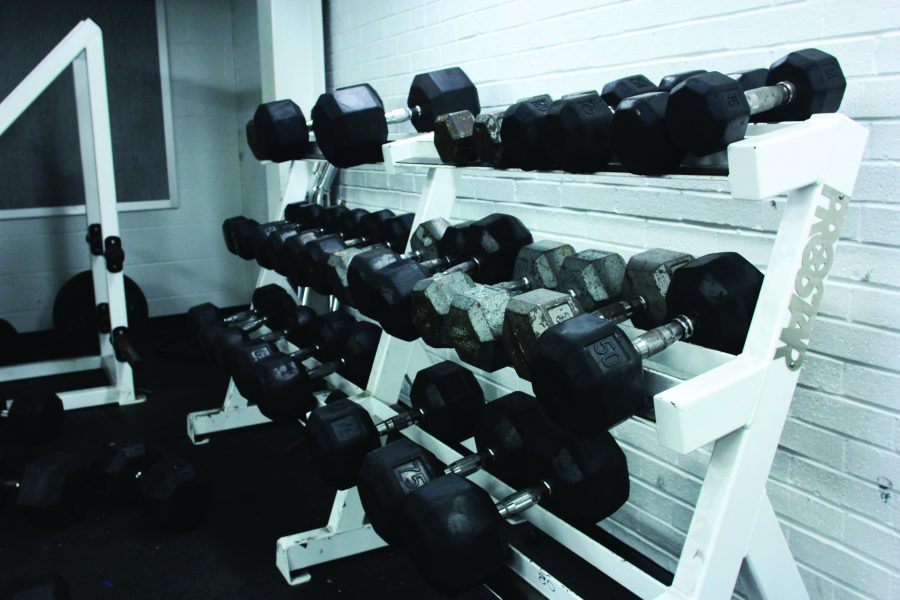Test anxiety punctures concentration, demolishes self-esteem
Most people, at one time or another, have felt their heart rate skyrocket and their chest tighten as they become nervous before performing a dubious task. Whether it is because of an important job interview or a performance in a play, people are naturally inclined to feel uneasy as they await results from an unclear fate.
Nervousness is normal. Anxiety, however, is not. While people can be diagnosed with general anxiety, a more prevalent problem in high school is test, or performance, anxiety. With a slew of exams weighing heavily on teenagers’ minds, test anxiety highly affects 16-20 percent of students and moderately affects another 18 percent, according to the American Test Anxieties Association.
“There is a state called ‘generalized anxiety’ and this is usually anxiety that does not have a clear environmental cause — meaning that the person is usually not anxious about one thing in particular,” University of Missouri-Columbia psychology professor Dr. Todd Schachtmann said. “That type of anxiety is different from anxiety that has a very specific cause, such as taking tests.”
Sophomore Sarah Bai suffers from test anxiety. As a high achieving student, Bai holds herself to an incredibly high standard that can be difficult to uphold.
“I feel really nervous because I am pressured to do better because of my parents or my friends or just any competition,” Bai said. “I am expected to get a certain score that I can’t, or don’t, feel necessarily that I can live up to or achieve.”
Despite the commonality of test anxiety, it still has extremely detrimental effects on its host, Dr. Schachtmann said. The negative impacts on health include immune system suppression in some cases.
“Anxiety causes cortisol, a certain hormone, among other things, to be released, and cortisol and other stress hormones work as a ‘fight or flight’ substance that helps us handle danger if we have to respond to danger in the next 60 seconds,” Dr. Schachtmann said. “The longer term effects of cortisol are bad for us.”
Not only does test anxiety affect health, it can also cripple a student’s performance on the test, Dr. Schachtmann said. Most people work best in a calm environment that enables them to feel safe and relaxed, but if students have to deal with anxiety when testing, they are not able to feel secure and, therefore, cannot remember all of the information crammed in their brain.
“If the anxiety keeps a student from studying, then obviously this is bad. If anxiety while taking the exam is distracting them while they are trying to read and answer questions, this is clearly not good [either],” Schachtmann said. “Anxiety can cause heart rate to increase, blood supply may be shunted away from the digestive tract, respiration changes, palms get sweaty… these physiological responses are probably not very good for test performance. It is true that performance in most cases need[s] a certain level of alertness to do well and, therefore, too little alertness or too much alertness can hurt performance.”
Math teacher Kevin Taylor notices how the influence of test anxiety in each student dictates their performance on the test. He said students who spend a lot of time preparing have a better outcome.
“Some people thrive under stress. Some people cave in or succumb to the stress,” Taylor said. “If you have test anxiety because you realize that you aren’t prepared, this is different than being anxious because of other reasons.”
Bai also sees the effect of her test anxiety on her results, but each case is different. Sometimes her anxiety helps her to be just alert enough, but many times, the scale leans too heavily one way or another and her performance is impaired.
“When it makes me do worse it’s because I doubt myself and I think that I don’t know the answers when I probably studied and I do,” Bai said. “When I do better, it’s because I drill into my head that ‘I know this,’ and I have to be confident.”
Taylor notices test anxiety among his high-achieving students when big tests are approaching, especially in his honors precalculus course because of the difficult nature of the course.
“The ones that are really, really focused on getting the perfect scores and grades I think have some [test] anxiety,” Taylor said.
Dr. Schachtmann agrees; the more tests that are occurring, the more students end up sick, further proving the connection between anxiety and health.
“Students have more visits to the student health service for infections when they have exams coming up,” Dr. Schachtmann said. “This does not mean that everyone that is anxious will have bad health effects; some people are affected more than others, no doubt.”
However, having test anxiety does not mean a student will automatically do bad on all of their tests. There are many effective ways for a student to deal with this stress and overcome the nerves.
“Taking deep breaths is very helpful to calm oneself down. It can relax the heart rate, which is a big part of anxiety. One can [also] avoid anxiety in the first place. A big way to do that is to pace oneself in terms of studying [and] not cramming,” Dr. Schactmann said. “Students that study a little bit all along, instead of cramming, rarely say, ‘I am so stressed because of my exams coming up.’ Usually it is the procrastinator that is so stressed. ”
Ultimately, Bai overcomes her stress by putting her fears in perspective instead of putting the impending test on an impractical platform.
“I just remind myself that no matter what happens, I will be O.K.,” Bai said. “I won’t fail or bomb the test, so I know that. I just have to constantly remind myself that everything will be fine.”
By Abby Kempf
art by Claire Simon
infographic information: adaa.org


















































































